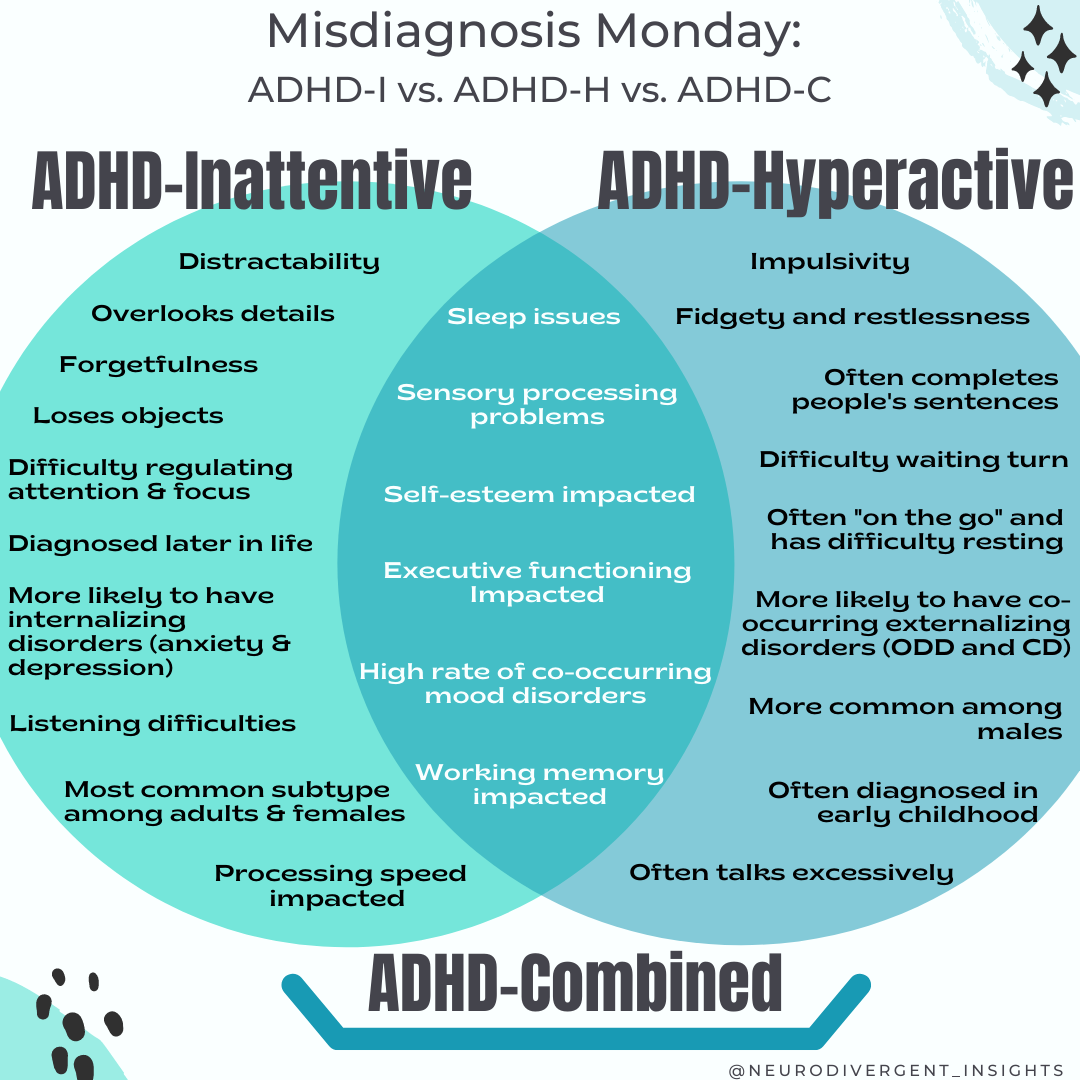What is ADHD?
Worldmind School provides outdoor-based and place-based education for neurodiverse, twice-exceptional, and gifted children. Our students have varied neurological differences, and we have a number of students at Worldmind with ADHD.
We’re celebrating National ADHD Awareness Month this month by sharing information with you about the different types of ADHD and how ADHD impacts the lives of those who experience it.
ADHD is a neurodevelopmental disorder impacting about 11% of school-age children. There are three major types of ADHD:
ADHD, combined type
ADHD, impulsive/hyperactive type
ADHD, inattentive and distracted type
Here is a diagram to help illustrate the difference between them:
Inattentive type ADHD is often not diagnosed until adulthood, and for many girls and women, it is never diagnosed, given the complex ways traditional gender socialization interacts with this type of neurodiversity. You can find more information here.
Living with ADHD
Many people with ADHD are highly creative, innovative, problem-solvers who change the world. The unique lens through which they see things enables them to find solutions to seemingly intractable problems.
Yet, as neurodiverse individuals, they are also often misunderstood, judged, and maligned. People with ADHD often have difficulty paying attention, sitting still, and controlling their impulses. They may also struggle with completing tasks that appear simple and easy yet are very difficult for them, such as: recalling information as soon as they are asked, organizing and keeping their rooms clean, and staying focused for extended periods of time. As such, ADHD can and does interfere with home and family life, academics and school, and social interactions and interpersonal relationships.
A “Hidden” Disability
ADHD is known as a “hidden” disability, in that it is not visible/readily apparent when you meet someone. While it is just as real as any physical challenge you can immediately recognize — like paralysis, blindness, and/or hard of hearing/deafness — ADHD is often misunderstood or goes completely unrecognized.
Often, people with ADHD are asked to do things that are akin to expecting a paralyzed person to walk, a blind person to see, or a deaf person to hear. This has devastating consequences for the person with ADHD, as other people become annoyed, angry, and frustrated with their inability to do what is being asked of them.
As a result of these misunderstandings and mistreatment:
By age 12, a child with ADHD receives 20,000 more negative messages than their same-age neurotypical peers, as estimated by Psychiatrist and author William W. Dodson, MD.
Adults with ADHD are at higher risk of thoughts about suicide, self-harm without an intent to die, and suicide attempts in comparison to other adults, according to a national survey of suicide in the US.
Girls and women are at higher risk for self-harm than boys and men, and girls and women with symptoms of ADHD are at a particular risk.
ADHD and Worldmind
At Worldmind, we create learning environments where neurodiverse students can thrive and build their self-confidence, self-worth, and self-esteem. We offer all students empathy, understanding, and the appropriate accommodations for their learning needs. As our students are neurodiverse and twice-exceptional, we are especially focused on the complex interplay of hidden disabilities like ADHD and giftedness, and how to best support our amazing learners.
Just as in the natural world, Worldmind students need time to grow into flourishing individuals. They each need a unique combination of inputs and accommodations, and we are proud of the customized work we do with each child. The learning trajectory of each student is a personal journey of attempts, failures, and successes. There is no “end” to this process, as we believe strongly in creating life-long learners in our community.
Our Present and Future
The complex world in which we live is crying out for innovative solutions and creative thinkers. Our students with ADHD and other types of neurodiversity will contribute to our society in amazing and unimaginable ways.
Worldmind is dedicated to supporting these incredible humans, and we couldn’t do it without your support. Thank you for contributing to a world in which all of us can thrive.
Resources
ADHD 2.0: New Science and Essential Strategies for Thriving with Distraction - from Childhood Through Adulthood by Edward M. Hallowell, M.D and John J. Ratey, M.D.
Different Minds: Gifted Children with AD/HD, Asperger Syndrome, and Other Learning Deficits by Deirdre V. Lovecky

